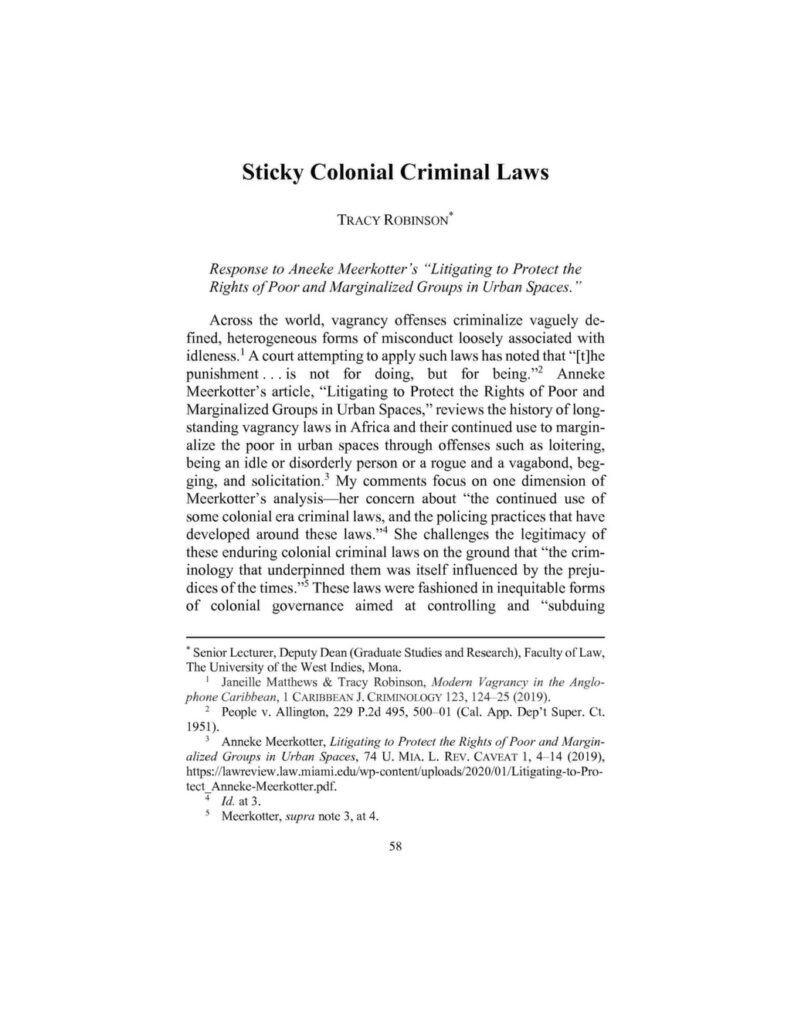Across the world, vagrancy offenses criminalize vaguely defined, heterogeneous forms of misconduct loosely associated with idleness. A court attempting to apply such laws has noted that “[t]he punishment . . . is not for doing, but for being.” Anneke Meerkotter’s article, “Litigating to Protect the Rights of Poor and Marginalized Groups in Urban Spaces,” reviews the history of longstanding vagrancy laws in Africa and their continued use to marginalize the poor in urban spaces through offenses such as loitering, being an idle or disorderly person or a rogue and a vagabond, begging, and solicitation. My comments focus on one dimension of Meerkotter’s analysis— her concern about “the continued use of some colonial era criminal laws, and the policing practices that have
developed around these laws.”
The colonial-era criminal laws Meerkotter examined have a stickiness or locked-in quality, meaning they “carry significant historical weight”, even when the laws are “suboptimal or anachronistic. . . .” I want to reflect further on the stickiness of colonial criminal laws in the context of the Caribbean states that were once a part of the British Empire (the “Anglo-Caribbean”).
Published in the UNIVERSITY OF MIAMI LAW REVIEW CAVEAT Vol. 75:58

